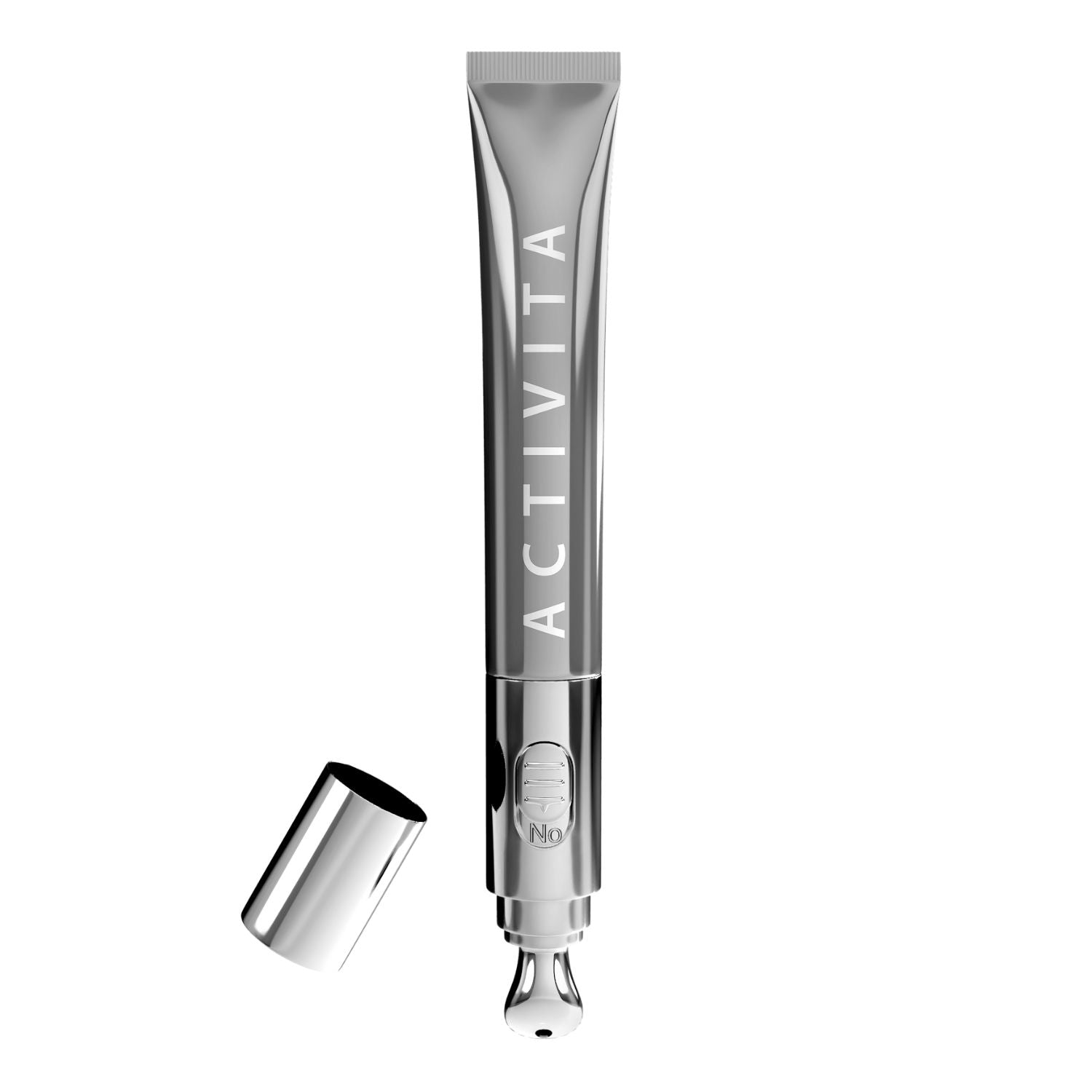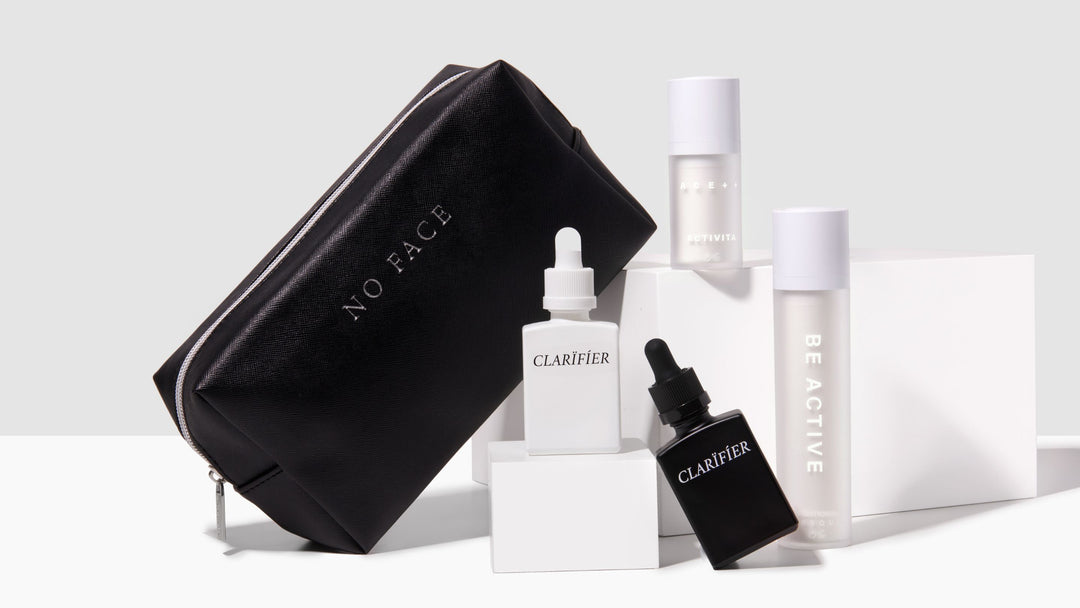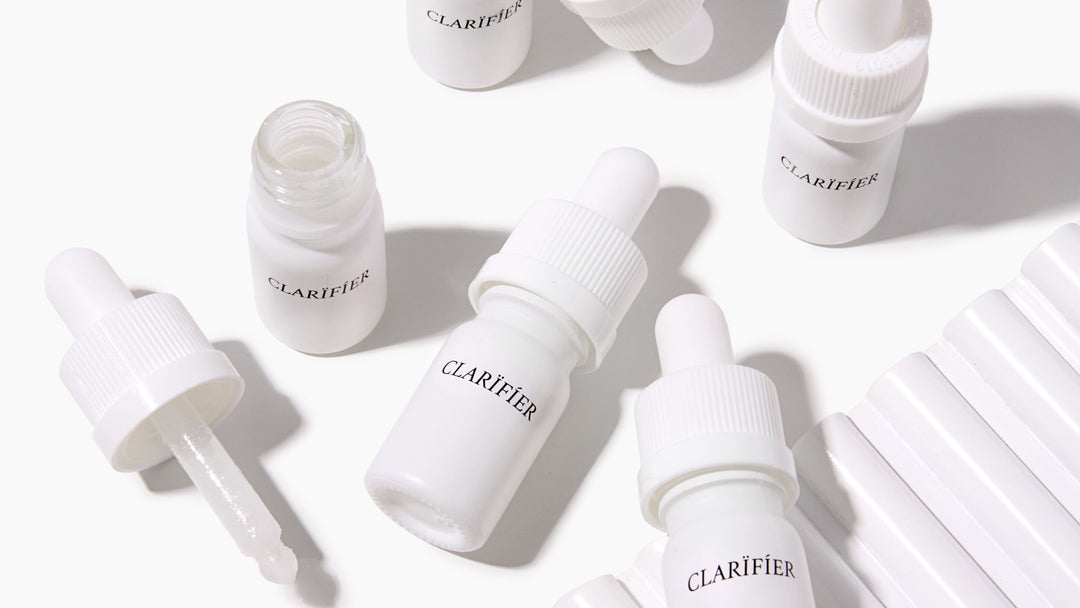Know Face 101 - Complete Guide to Vitamin A
Vitamin A B C are the most studied skin vitamins in dermatology. They have been used in treating skin concerns for decades. Do you need them? And how do you use them as a part of your daily skincare routine? Stay tuned with Know Skin 101, an education initiative by NO FACE Researched Skincare to provide free cosmetic dermatology knowledge so that you can learn everything that you need to know about your skin, in order to make the right decisions to purchase the right products for your specific skin concerns.
So you've heard that Retinol or Vitamin A is essential for correcting skin issues, and that there are many products formulated with Retinol.
What is Retinol?
Retinol is a type of Vitamin A derivative. Vitamin A is an essential vitamin naturally existed in human body. When used topically, Vitamin A can penetrate the skin and accelerate cellular turnover to naturally shed skin blemishes, we will talk about this in details in the content below. But first, you need to understand that Retinol is only one of many forms of Vitamin A derivatives. We use the word derivative because Vitamin A as a complex can contain a variety of chemical forms, and in dermatology, we use its derivatives as a more direct form so it can work better topically.
So how does Retinol work?
Retinol as a form of Vitamin A derivative will immediately be metabolised when you put it on your skin, with the majority of it becoming metabolites in the epidermis, as the epidermis (top layers of the skin) is mainly keratin and lipid barrier, they will absorb Retinol and metabolise it, with some of it becoming waste (metabolites), and some becoming converted into Retinoic Acid, which is the direct and most potent form of Vitamin A. Before we talk about the benefits and side effects of Retinoic Acids, you need to know other forms of Vitamin A derivatives as well, so that you know the differences of their conversion in the skin.
Now you know that Retinol would need to be converted into Retinoic acid in order for it to work. Other forms of Vitamin A derivatives frequently seen in cosmetic products include:

The weakest form of Vitamin A in cosmetics would be Retinyl Acetate. This form of Vitamin A needs to be converted through more steps in order to become Retinoic Acid. This means that more wastes would be created along the conversions and that the actual Retinoic Acid amount would be the least. Retinol on the contrary, would require less conversion and become more Retinoic Acid for the skin. One of the highest converted Vitamin A derivative is Hydroxypinacolone Retinoate (HPR), as it's the closest to the Retinoic Acid form.
How does Vitamin A work to reduce hyperpigmentation?
Hyperpigmentation is a skin issue caused by the hyperactivity of melanin. If you have darker skin, then this becomes a more frequent complaint as darker skin types naturally contain more melanin, and therefore with environmental damage such as the UV, and intrinsic disorders, parts of the skin can produce more melanin, forming dark spots, which can be a cosmetic problem to beauty lovers. Vitamin A as a naturally existed essential vitamins provides the benefits of hyperpigmentation reduction. It works by accelerating the skin's cellular renewal. As our skin is constantly naturally renewing itself, the top layer of the epidermis would naturally shed over time, typically over 28-32 days. While tiny spots being able to be naturally shed without causing concerns, bigger and stubborn spots may not be naturally gone over time, as the bottom layer of the epidermis Stratum Basale may malfunction by producing more and more melanin, causing the skin to not be able to get rid of the hyperpigmentation naturally. That's when a bit extra help would be needed. A good vitamin A product can help accelerate the renewal process so that the melanin would be pushed to the front a lot faster than usual, so that the Stratum Basale wouldn't get a chance to overproduce the melanin, and therefore reducing hyperpigmentation.

At the same time, Retinoic Acids can get into the skin's dermis, where collagen is produced, to improve the skin's natural elastic ability and make the skin look more plump, so that aged skin and scarred skin can benefit from these skin activities. Active acne can also be reduced by potent Vitamin A as a result of cellular renewal.
So how to choose the right Retinol/Vitamin A?
Now that you understand how Vitamin A works and how different forms of Vitamin A convert in the skin, understanding your skin type is crucial. A more direct form of retinoic acid means potentially more irritation on the skin. However, if the Vitamin A form is too weak or without a proper concentration, then it also may not work.
ACTIVITA A as a part of the 3 Essential Skin Vitamin Concentrates, is formulated with a proprietary Retinoic Acid compound including HPR, one of the most direct form of Retinoic Acid. However, this form of Retinoic Acid is formulated to be less irritating to the skin while providing the essential benefits of cellular renewal, most suited for UV damaged and aged skin types.
Evolve in the Dermatology Science Formula range is a hydrogenated retinol, powerfully formulated to suit clinical needs for the reduction of signs of melanin and acne. As this type of Retinol is the most powerful of its form, targeting skin issues from epidermis to dermis, showing significant results in cosmetic treatments for hyperpigmentation, acne and oil reduction.
How to use a Vitamin A?
Vitamin A is best used at night and on its own for skin renewal abilities. Why only at night? Vitamin A is not photo stable and it can become less powerful when used during the day, and more importantly, it can cause photo sensitivity in the skin, resulting in skin problems for the long term. Vitamin A can be combined with Vitamin B3 (Niacinamide) at night, or be diluted with hyaluronic acid in order to reduce irritation for sensitive skin types.
Is it normal to experience irritation?
Yes, Vitamin A can cause skin irritation, and this is a result of an acute inflammation in order to control long term skin damage. Redness, sunburn sensation and even a purge of acne can be expected due to the powerful retinoic actions. Many people would stop continuing the treatment once they experience irritation. Depending on the type of Vitamin A product, we suggest choosing carefully and know what to expect before you purchase, and consult with a professional such as a NO FACE Skin Advisor to incorporate in your routine correctly to make it work the best for you.









Leave a comment